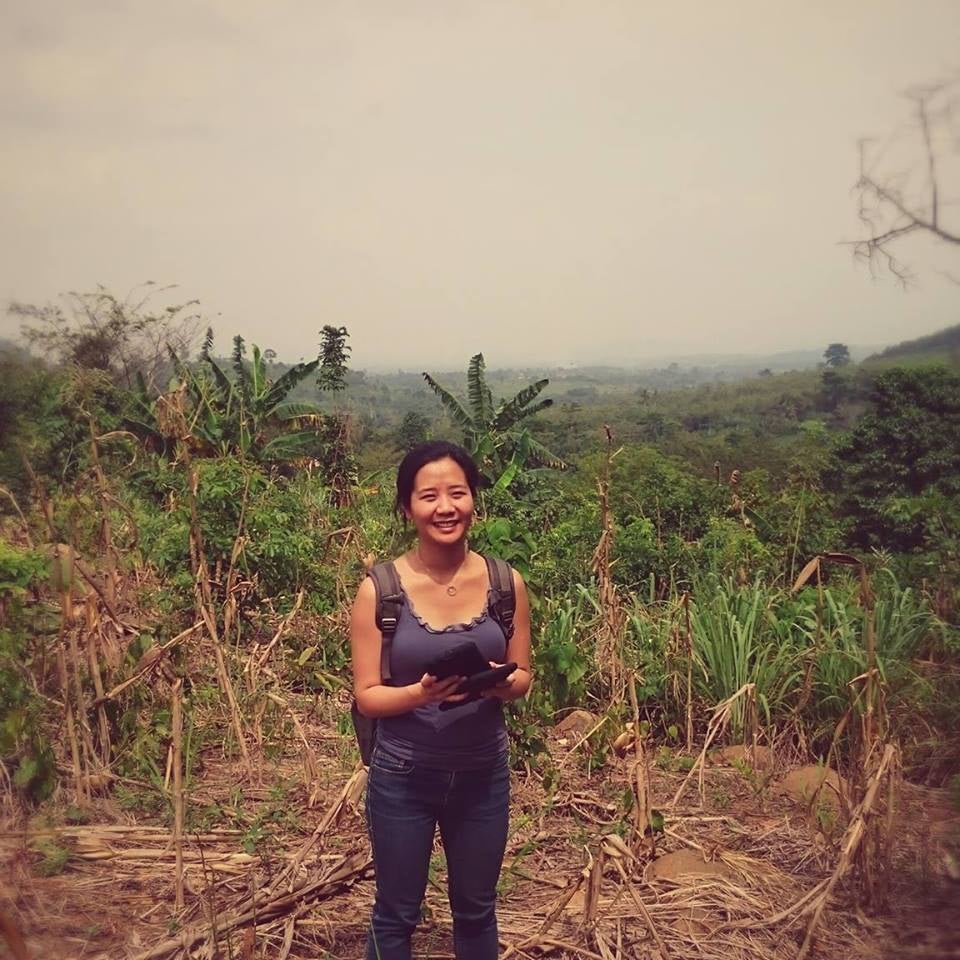
With the PACS program, Catherine set herself on a new trajectory to grapple with complex social issues and try to make the world a little bit better. The flexibility of the PACS program allowed her to explore her own interests at a more practical level. She particularly enjoyed the many opportunities to pursue creative final projects, such as digital projects, rather than essays, stating that:
It was a lot more work … but I think it was really helpful in making the links between the academic and the practical. For example, I was able to use one project as an opportunity to talk to different organizations in Kitchener-Waterloo who promote peace… I think if you’re looking to make your academic life more relevant in the practical world, you have to do the research and the work to find out what opportunities are out there.
Through the PACS Field Study Catherine worked with Project Ploughshares, now based in the Centre for Peace Advancement at Conrad Grebel, co-authoring their annual Armed Conflict Report and coordinating a public outreach event to educate the community about the arms trade.
The door that led her to her current career path was PACS 324: Human Rights, Peace and Business, a course exploring the tension between the values of human security, human rights and traditional economic policy. This course introduced her to the idea that businesses can be both forces of positive and negative social change, and to the concept of social enterprises: businesses that exist to create solutions to a social or environmental problem.
Upon completion of her Diploma, Catherine moved to the UK to join a social enterprise leadership program called On Purpose. On Purpose is a one-year fellowship designed to develop leaders in the social enterprise sector. The program combines two placements with purpose-driven organizations and comprehensive training from leading global organizations and various industry leaders. One of her placements was with Social Enterprise UK, a membership body for social enterprises whose goal is to grow the social enterprise movement. They do this through public awareness campaigns, robust research for the sector, and the development of social enterprise networks.
She now works at Firetail, a consulting firm for socially conscious organizations. At Firetail, Catherine works on the Agricultural, Learning and Impacts Network initiative, which specializes in improving monitoring and evaluation in agricultural development programs. She’s currently working on the Bill and Melinda Gates Foundation’s Sentinel Grant Program, measuring results against the foundation’s strategies. This involves providing technical support to 26 agricultural development grantees in South-East Asia and sub-Saharan Africa. Catherine helps organizations figure out what they need to measure to show that they have made an impact and what they can learn from the data. She has had the opportunity to travel to visit many of the projects she works with, including recent trips to Ghana and Uganda.
The PACS program helped to prepare Catherine to understand that positive change can happen in a complex system by introducing the many perspectives involved in global problems.
The PACS program gave me a forum for appreciating how different people come together. Math taught me that you’re able to model a problem and then find a solution. But models are abstractions that take away most of the complexities in the real world. PACS taught me the opposite: problems in society exist in a complex system, where it’s impossible to predict the unintended consequences of any action. I think I’ve found a path that allows me to balance the two different realities. My job gives me a chance to use my problem solving skills, but I am also aware that what I know and can know is limited.